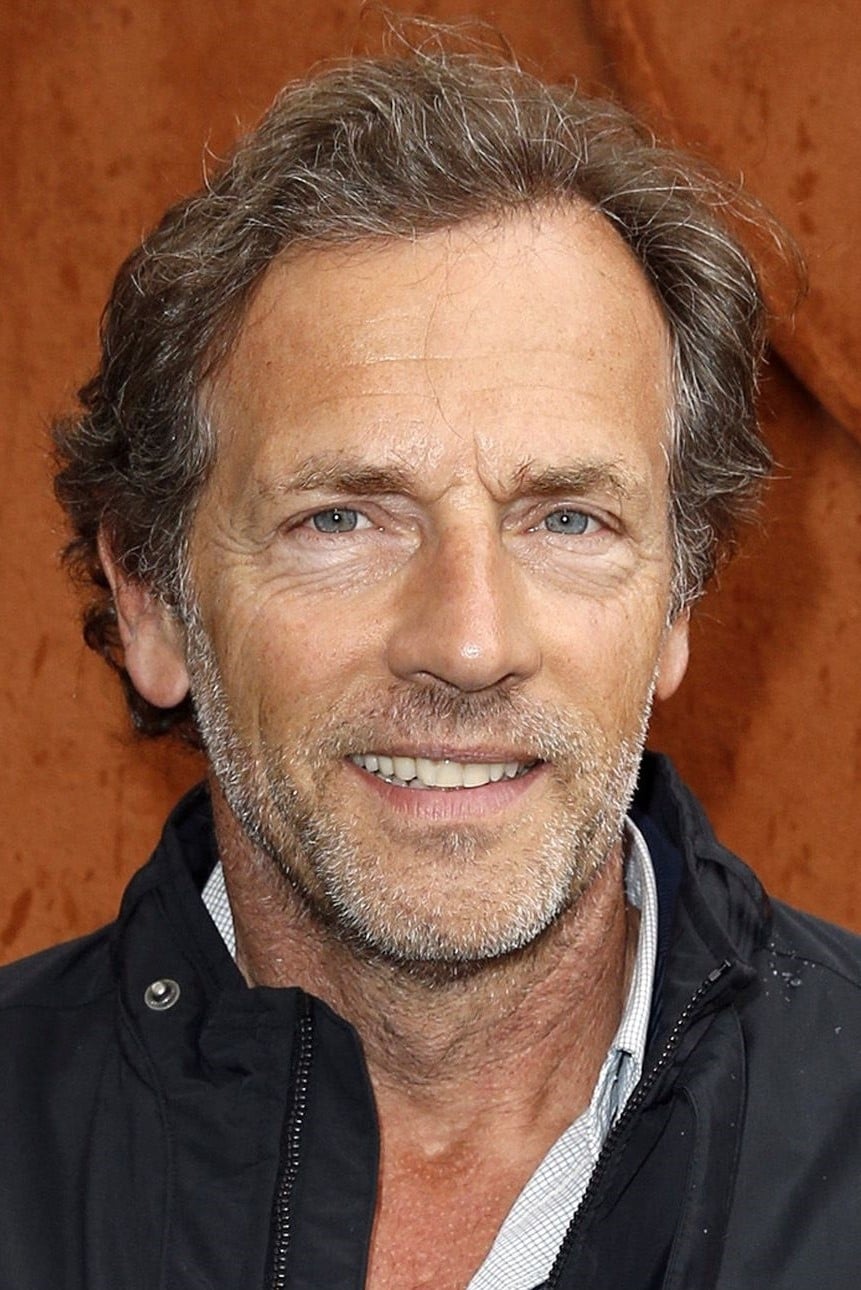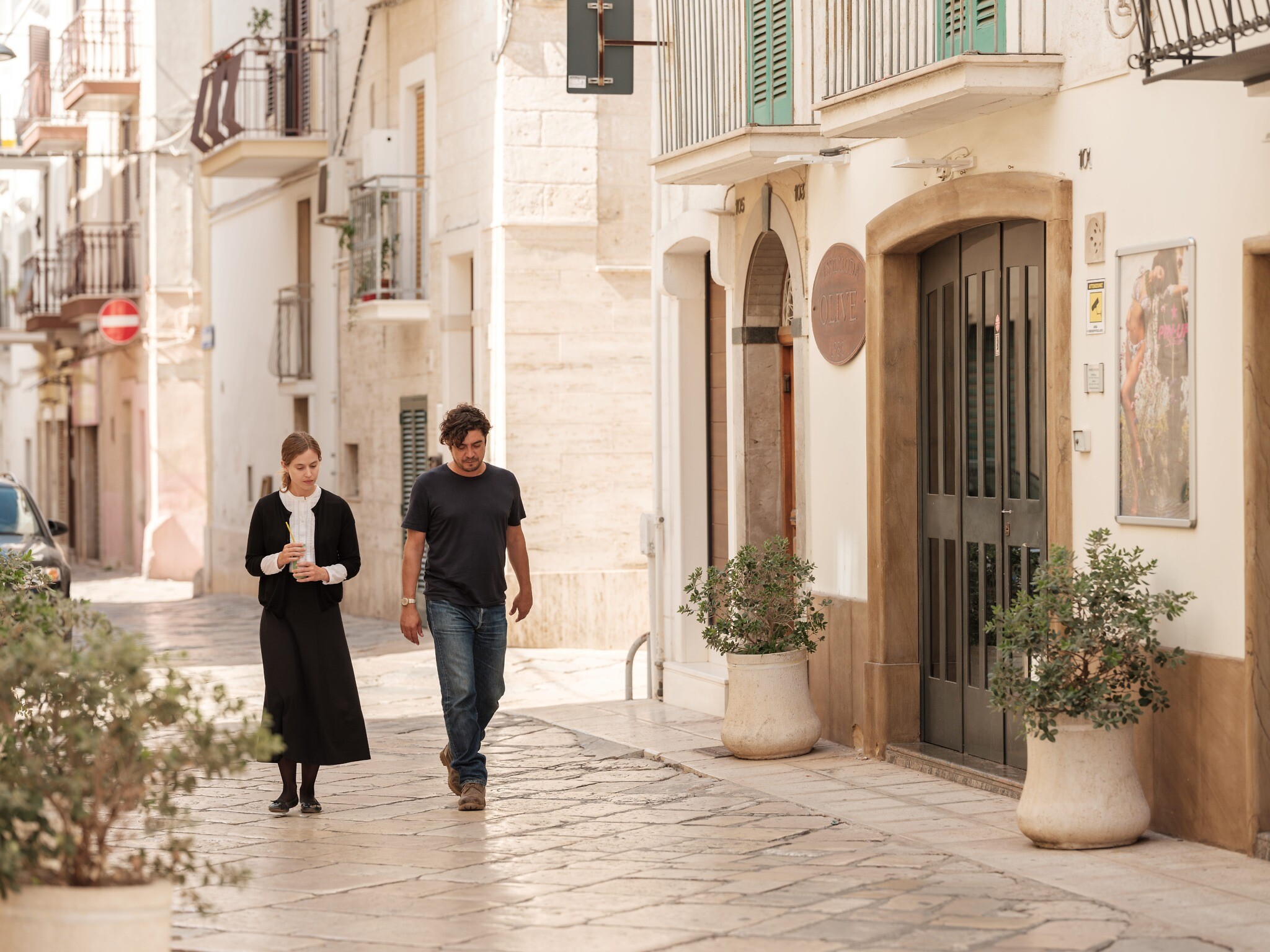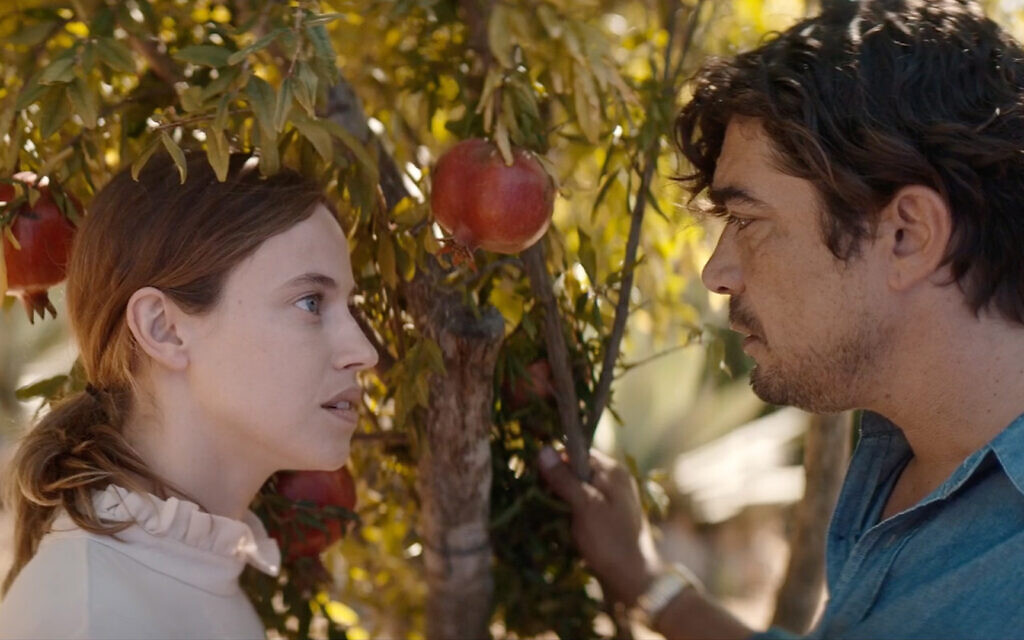An Orthodox Jew finds freedom in Italy – but it’s not a Jewish film
French actor-turned-director Stéphane Freiss talks about about his UJKJFF closing gala movie
“I didn’t make a Jewish film. I made a film about freedom.” This is a bold statement from Stéphane Freiss, the Cesar-winning French actor whose directorial debut movie closes the UK Jewish Film Festival this month.
Set on a farm in Calabria, Italy, Where Life Begins uncovers the centuries-old tradition of orthodox Jews travelling to the region each year to harvest etrogs for Succot. It opens with 26-year-old Esther, who is visiting with her family from Aix-les-Bains in France, writing a letter to her father explaining that he always told her to follow her truth and the truth is that she needs to break the chains of her religious life.
Elio, the non-Jewish Italian farmer at whose farm they are staying, is also bound to his family traditions and loyalty to his late father’s wishes mean that he, too, feels trapped. The two of them form a bond. Visually stunning and deeply moving, it raises many questions.
Get The Jewish News Daily Edition by email and never miss our top stories Free Sign Up
Paris-based Stéphane, 61, didn’t even know he was Jewish until he was 12. “Both my parents were hidden as children during the war and never spoke about this or their Judaism. When we used to visit my grandparents in Belgium, they often spoke a strange language; I didn’t know that it was Yiddish.”

When Stéphane was 12 his parents got divorced and Judaism then made a big impact on his life. “In an attempt to find herself my mother took up zen yoga and tried all sorts of meditation. Then one day a Jewish friend came to our house to take her out somewhere and on the way they stopped at a synagogue to hear the shofar. From that moment, she changed completely. She became fully involved with the Lubavitch movement (his brother followed suit). She eventually moved to Kfar Chabad (a religious moshav in Israel).”
Stéphane found that he could no longer communicate with his mother on a meaningful level. If he tried to talk about something other than Judaism, she had nothing to say. In later life, when he would take his three children to see their grandmother her first question would be: “Do you have Jewish friends in your class in school?” Stéphane was always upset by this. “I wanted her to be in interested in what they were doing and to form a connection with them.”
She died before the film was finished. “I’d love her to have seen the film because it was my response to our incapacity to communicate.”
Stéphane remains perplexed as to why his mother wanted to be so immersed in a world in which women are side-lined. In the film we see both the Italian women and the orthodox Jewish women working in the kitchen while the men farm the land. I point out that in this respect there are parallels between the two communities .“Yes but the orthodox women are very much put on the side,” he says. “They don’t have the freedom to dress as they wish, to sing and dance with the men, to touch each other. Orthodox people are not at all tactile.”
When Stéphane was 14, his mother took him and his brother to Israel for two months. “I think she was already thinking about living there. I spent the time in a yeshiva, where I started to discover Judaism but only through orthodox teaching. For a long, long time I thought that this was the only way of being Jewish.”
Recently divorced, he lives with his girlfriend, who is a rabbi. “I’m not practising but I know everything. I’m not sure that I believe in God but this is not really the important thing in Judaism. A writer I admire says that being Jewish is to be a reader. I believe in that. It’s about our way of reading and interpreting. When I listen to my girlfriend or different teachers talking about the hotshot moments of the Bible I’m always interested because it’s very fickle, and it helps you to think about the relationship you have with other people, Jewish or not. It’s very philosophical.”

Spoiler alert: the relationship between Esther and Elio doesn’t develop into a romance. “The challenge for me was not to make it predictable. The producers tried very hard to make me add a sex scene but I didn’t think it was useful to make their relationship go further,” Stéphane explains. “I just wanted to open the door and to put them in front of each other. She’s leaving this world thanks to him. And who knows? We are left wondering what will happen when she returns to France. The thing is that he helped her to get free. And she helped him to understand that he was trapped, too. They help each other and little by little, it becomes a sentimental story. I would say it’s a love story by the end.
“I like to think that in life there is always an opportunity to get free of our decisions and what we received from our traditions and our family. What you got from your education won’t be the same as what you will give to your children. As Esther says to Elio: ‘I don’t think to be faithful is to repeat exactly what you receive from your parents.’ In your life you will have your own hopes and your own opinions on the Bible – your own thoughts as to whether you believe in God.”
The only Jewish actor in the cast is the one who plays Esther’s father. He is a rabbi and during filming he taught the others how to lay tefillin and pray. “I modelled his character on some of the Lubavitch I met at Kfar Chabad,” says Stéphane. “They were very sweet but, like Esther’s father, they think that their beliefs are the only truth.”
When Stéphane was writing the film, he went to Italy to meet the farmers. He was touched by how respectful they are of the orthodox Jews who come every year, and the relationship they have built with them. “They know that thanks to these radical orthodox Jewish people, they can save their year. An etrog can sell for as much as 20 euros and the best ones are sometimes worth 500!” We see the Jews measuring the etrogs and even Elio knows a kosher lemon when he sees one.
When Stéphane’s brother saw Where Life Begins he said: “I love your film. It’s very interesting, very sensitive, very delicate. But next time make one about somebody who’s coming in to the religion, not leaving it.”
This is not on the agenda for Stéphane. “My question will always be about how to be free, how to make life joyful. Life is about our capacity to be connected and open to the world. It’s sad that a lot of people do not live like that.”
The UK Jewish Film Festival 2022 takes place in cinemas nationwide and online until 20 November. Where Life Begins is the closing gala. ukjewishfilm.org

Thank you for helping to make Jewish News the leading source of news and opinion for the UK Jewish community. Today we're asking for your invaluable help to continue putting our community first in everything we do.
For as little as £5 a month you can help sustain the vital work we do in celebrating and standing up for Jewish life in Britain.
Jewish News holds our community together and keeps us connected. Like a synagogue, it’s where people turn to feel part of something bigger. It also proudly shows the rest of Britain the vibrancy and rich culture of modern Jewish life.
You can make a quick and easy one-off or monthly contribution of £5, £10, £20 or any other sum you’re comfortable with.
100% of your donation will help us continue celebrating our community, in all its dynamic diversity...
Engaging
Being a community platform means so much more than producing a newspaper and website. One of our proudest roles is media partnering with our invaluable charities to amplify the outstanding work they do to help us all.
Celebrating
There’s no shortage of oys in the world but Jewish News takes every opportunity to celebrate the joys too, through projects like Night of Heroes, 40 Under 40 and other compelling countdowns that make the community kvell with pride.
Pioneering
In the first collaboration between media outlets from different faiths, Jewish News worked with British Muslim TV and Church Times to produce a list of young activists leading the way on interfaith understanding.
Campaigning
Royal Mail issued a stamp honouring Holocaust hero Sir Nicholas Winton after a Jewish News campaign attracted more than 100,000 backers. Jewish Newsalso produces special editions of the paper highlighting pressing issues including mental health and Holocaust remembrance.
Easy access
In an age when news is readily accessible, Jewish News provides high-quality content free online and offline, removing any financial barriers to connecting people.
Voice of our community to wider society
The Jewish News team regularly appears on TV, radio and on the pages of the national press to comment on stories about the Jewish community. Easy access to the paper on the streets of London also means Jewish News provides an invaluable window into the community for the country at large.
We hope you agree all this is worth preserving.
-
By Brigit Grant
-
By Laurent Vaughan - Senior Associate (Bishop & Sewell Solicitors)
-
By Laurent Vaughan - Senior Associate (Bishop & Sewell Solicitors)
-
By Laurent Vaughan - Senior Associate (Bishop & Sewell Solicitors)
-
By Laurent Vaughan - Senior Associate (Bishop & Sewell Solicitors)






















